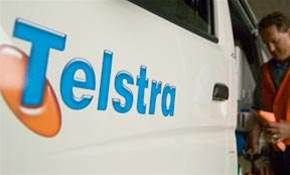Recent increases in pricing for Telstra's mobile bundle and broadband plans indicate a move back to the telco's premium price position in the market, according to analysts.

But some have questioned whether the move, which appears to tax heavier data users more than others, is enough to cover the cost of improvements to mobile towers and related infrastructure required to relieve stress on its increasingly strained mobile network.
Telstra has overhauled its consumer mobile offerings over the past month, beginning with an increase to the data allowance on its higher tier offering — up to 12 GB, expiring after 365 days. However, it also upped the price from $150 to $180.
In mid-June, the telco increased its highest-tier postpaid mobile broadband plan — at 15 GB of data — by $10 per month to $110 without bundling.
This week, the telco overhauled all mobile bundle postpaid plans, scrapping the cheaper $29 tier while decreasing data allowances and increasing call rates on most plans.
The company also revamped its bolt-on data packs for mobile users, offering significantly more data allowance for its lowest tier — 250 MB for $5 — but removing a 12 GB option. Instead, the most users can purchase per month is 8 GB for $60.
A spokeswoman for the carrier chalked up the changes as a move to help "maintain investment in our network so customers can continue to enjoy the speeds and reliability they've come to expect".
But analysts have questioned whether those price hikes will be enough to cover the cost of investing in the network.
Telsyte telco analyst Alvin Lee said changes to plan prices over recent weeks "come as a result of both relieving network stress and justifying any investment costs of Telstra's 4G network".
"By reducing data allowance for some popular mobile plans, carriers are avoiding directly reflecting the pressure on prices," he said.
"It is an indication of increasing demand in data and a higher cost of supply."
Telstra expedited plans to roll out LTE technology ahead of competitors last year partly in an effort to decrease the cost per bit of delivering traffic over the network, while increasing capacity overall.
But continued reports of users experiencing poor network speeds or degraded coverage over the past 12 months, particularly in metropolitan areas, indicate cracks beginning to appear in Telstra's claims that its network is world-leading and Australia's best.
The telco has been keen to stress the virtues of its Next G mobile network of late, pointing to 1000 base stations enabled for LTE since the beginning of 2011 — out of a total 7500 sites — and 5000 "capacity augmentations" to the network to keep up with demand.
Telstra's spokeswoman said the company planned to ramp upgrades to individual sites.
"Capacity investment prevents network stress," she said.
"To keep ahead of customer demand, Telstra is lifting its network investment in the year ahead, including upgrading 50 percent more mobile base stations than the financial year just gone."
That increase in network investment is beginning to show — while capital expenditure in the network remained largely stagnant over the 2010 and 2011 financial years, Telstra recorded a $250 million uptick in capital expenditure for the first half of the 2012 financial year.
It is likely that increase will follow through when Telstra reports its full-year financials for 2012.
The network investments are needed — Telstra has consistently experienced a doubling of bandwidth over the mobile network every 12 months, and network director Mike Wright recently reported that traffic growth over the 2012 financial year equated to the same growth over the previous five years combined.
The company added more than 2.5 million customers to its mobile roster over 18 months and has boasted 300,000 customers using 4G-capable devices since the launch of the network last September.
"Managing this enormous growth in traffic requires significant ongoing investment for our customers," he said.
"To date we have spent over $3.5 billion on this network — and there's more to come."
Not all are convinced the network investment and plan changes are necessarily linked.
Gartner analyst and former Telstra engineer Geoff Johnson said Telstra's network stress came as the "flip" of Vodafone's network and customer loss woes.
Where Vodafone's network issues were borne out of a dearth of network coverage, Sol Trujillo's "aggressive wireless strategy" while chief executive of Telstra had continued to pay dividends, boasting enough network growth over competitors.
However, Telstra's moves to increase pricing at the heavier end showed a "need to manage abusive use".
"Telstra is an experienced operator; they're way less likely to let the engineering and marketing balance get out of control as Vodafone did," he said.
Ovum analyst Nicole McCormick said the move was an indication of Telstra's attempt to restore its position as a premium carrier.
"It traditionally has charged more due to its superior network coverage and depth," she said.
However, analysts agreed on Telstra's unwillingness to react on lowered prices from its key competitors, a move pre-empted by chief executive David Thodey when asked about a potential 'race to the bottom' on pricing.
"I think there's reasonably rational behaviour at the moment and we're hoping that will continue," he said last year.
"Should there be a price war I think we'll continue to be very focused on why people come to us — the coverage of the network, the strength, the great wireless data speeds — and we'll respond accordingly.
"We've always said we want to have competitive offers in the market. We never said we'll be the cheapest."




_(20).jpg&h=140&w=231&c=1&s=0)






 iTnews Executive Retreat - Security Leaders Edition
iTnews Executive Retreat - Security Leaders Edition
 iTnews Benchmark Awards 2026
iTnews Benchmark Awards 2026
 iTnews Cloud Covered Breakfast Summit
iTnews Cloud Covered Breakfast Summit
 The 2026 iAwards
The 2026 iAwards











_(1).jpg&h=140&w=231&c=1&s=0)



